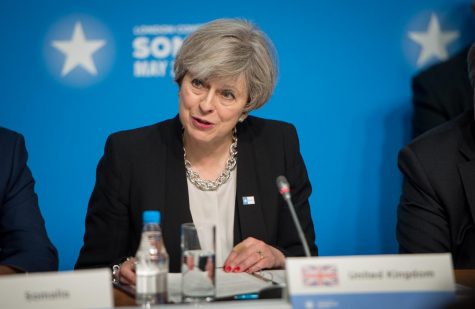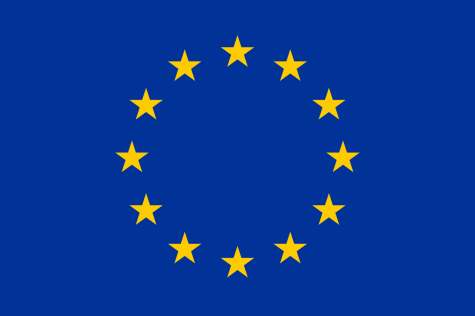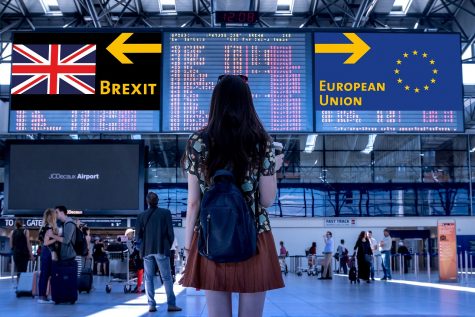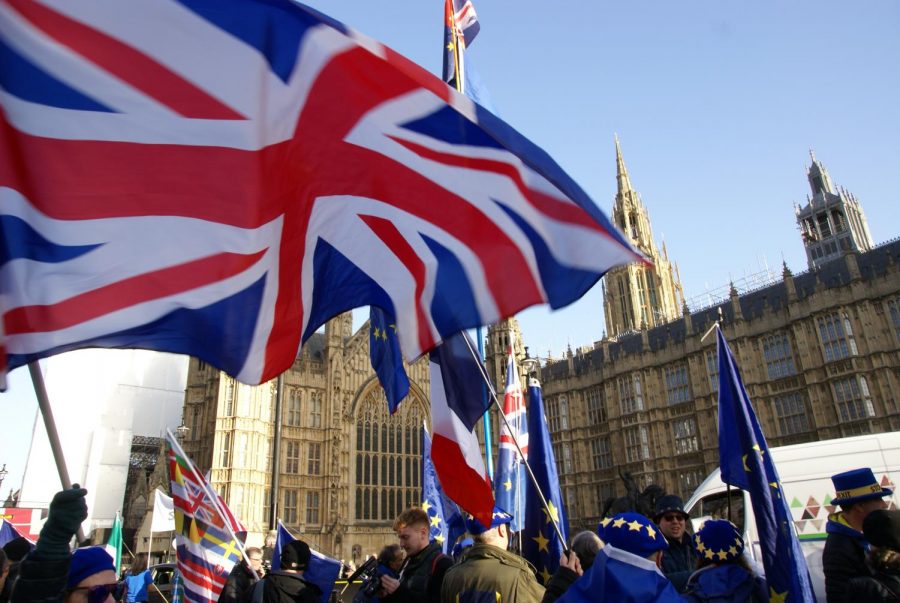The Brexit Decision: England’s Ultimate Choice
April 1, 2019
Complex is one word which can be used to describe the perplexing maze of negotiations which have occurred over the past three years between the United Kingdom and European Union on the topic of Britain’s withdrawal from the union.
The term “brexit” has been coined as a title for the exit of the United Kingdom (U.K.) from the European Union. The European Union, commonly referred to by the abbreviated form EU, is a political and economical partnership of 28 countries spanning through Europe, who share administration duties over the laws devised for the region. Each country still remains to have their own government system, but also provides and aids in the cultivation of resources, trade, and economic policies applicable throughout the area. The U.K. has remained a part of the union for forty-six years, but has been in the process of leaving for the past three years.

On June 23, 2016, the first referendum was held in the U.K., asking for the citizens opinions on whether or not they would be interested in leaving the European Union. The public favored Brexit, just slightly, with the poles concluding at 51.9 % in favor of brexit as opposed to 48.1 % who wished to stay. Theresa May triggered the process on March 29, 2017 by invoking article fifty, a law granting EU members the right to exit the union and a two year negotiation period to form an exit deal. The scheduled leave is therefore to be on the 29th of March in 2019, however the United Kingdom can call a halt to the process at any time prior to this date and the EU can vote to extend the date if the decision is unanimous. Many different strategies have been proposed over the long time frame, however much controversy still remains amongst British parliament members as a unilateral decision has not yet been met.
The results of the original referendum were quite close overall, but the results varied across the U.K. England, which was pinnacle in the decision, voted for the Brexit but not by an overwhelming majority. Whales was most greatly divided, two opinions being very few points apart, but the eventual winner being in support of Brexit. Northern Ireland and Scotland were not in favor of Brexit and the polls were not as separated. It is anticipated that a majority of the pro-exit voters originated from the low to middle class population, which is speculated to stem from a sense of abandonment by mainstream politicians. The results were closer than anticipated as a sense of wariness toward Europe as a whole has overshadowed the U.K. for centuries; dating back to 1957, when England decided not to initially join the European Economic Community. Euroscepticism can be defined as the opposition to the policies drafted and enforced by the EU and or the opposition to Britain’s membership and association with the union as a whole. This belief is not unique to Britain, and has been among societies since the origination of the European Union, been displayed many times over the past few decades, most notably through the U.K.’s refusal to convert to the European currency and insistence on the continuous use of pounds.

Those in support of leaving the European Union offer three main explanations as for why they so strongly oppose Britain’s association in the union. They first claim that the English have lost economic and policy control over their own country. For the past few centuries, the United Kingdom, has dominated and offered a great presence amongst many other nations of the world. Many believe that due to their integration into the EU this supremacy has been lost, claiming that England is no longer as instrumental in international functions. Similarly, many English believe that Brussels possesses too much political power over the union and that their dominance is unfair. Brussels, located in Belgium, is the capital of the EU, therefor housing a majority of the main EU institutions and buildings. Brussels hosts the official seats of the European Commission, Central European Universities, and European Council and has the power to make important parliamentary decisions. Due to the lack of power which they have and limited say citizens have when it comes to crucial decisions made by the government, English citizens simply feel as if they no longer matter. The final reason for why they wish to leave, deals with the recent immigration crisis which the EU is facing. Citizens living in any country which is a member of the EU, has a simpler time migration from one country to another. However England feels as though this power is being abused in their country and would like the law revoked. The extreme influx of immigrants creates for a lack of jobs and higher unemployment rates, which is troubling for many citizens.
On the contrary, those in favor of remaining apart of the European Union claim that this migration concern is being blown extremely out of proportions and is not nearly as dire as some make it appear. Citizens also are concerned that England’s withdrawal may jeopardize London’s status as a high ranking global financial center. It is written in the EU withdrawal agreements that negotiations must be made with any country wishing to leave about their stance on trade with the EU after their departure. Some fear that England will be unable to negotiate fair trade agreements with the EU, causing for a loss of passport rights with major businesses and corporations.

Throughout the process of their withdrawal, England has discovered the immense repercussions which may come with their withdrawal from the union. As previously discussed it could have long as well as short term financial damages, including the loss of trade investments without access to the unions open market. More pressing however, Scotland has voiced their potential desire to withdraw from the UK and re enter the EU as an independent nation. Scottish citizens have expressed their lack of encouragement for the withdrawal plan and have voiced their potentiality of leaving. There has been great discussion about the Irish backstop as well which discusses the insurance that no hard border will be drawn between Northern Ireland and the Republic. Therefore, whichever side on supports, it must be acknowledged that England may face issues after the withdrawal process is complete.
The leaving date was scheduled for the twenty-ninth of March. The recent deal proposed by Theresa May was rejected and she has since devised a new plan which she plans to present soon in May. It is an option to leave with no deal, but this would offer Britain the fewest benefits and is therefore extremely undesirable. Parliament is, as well as the people, more divided than ever as their days remaining in the union begin to dwindle. What does the future look like for Britain?























































Mrs. Lanza • Apr 3, 2019 at 7:23 pm
Sarah, very nicely written and informative article! It’s always good to be informed about international issues. Keep up the good work!